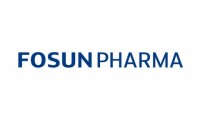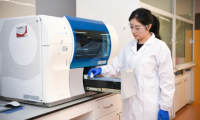-
Fosun Pharma’s Self-developed Artemisinin Medicines Inject New Impetus to Malaria Prevention and Treatment in Africa
- Source: drugdu
- 260
- April 30, 2024
-
【EXPERT Q&A】What is the relationship between FDA registration and 510K registration for medical devices and what is the difference?
- Source: drugdu
- 527
- April 30, 2024
-
New CE-Marked Hepatitis Assays to Help Diagnose Infections Earlier
- Source: drugdu
- 291
- April 29, 2024
-
AI-Powered Digital Imaging System to Revolutionize Cancer Diagnosis
- Source: drugdu
- 304
- April 29, 2024
-
Merck plans €300m investment at new German research centre
- Source: drugdu
- 350
- April 29, 2024
-
Chiatai Tianqing’s Class 1 Innovative Drug TQA3038 (siRNA) Completes Phase I Clinical Study
- Source: drugdu
- 562
- April 29, 2024
-
Nestlé India and Dr Reddy’s announces joint venture
- Source: drugdu
- 433
- April 29, 2024
-
Parexel partners with Palantir to accelerate clinical data delivery
- Source: drugdu
- 382
- April 29, 2024
-
【EXPERT Q&A】What is the specific process of ce certification for medical devices?
- Source: drugdu
- 449
- April 29, 2024
-
Pharma Asia 2024
- Source: drugdu
- 658
- April 29, 2024
your submission has already been received.
OK
Subscribe
Please enter a valid Email address!
Submit
The most relevant industry news & insight will be sent to you every two weeks.
















